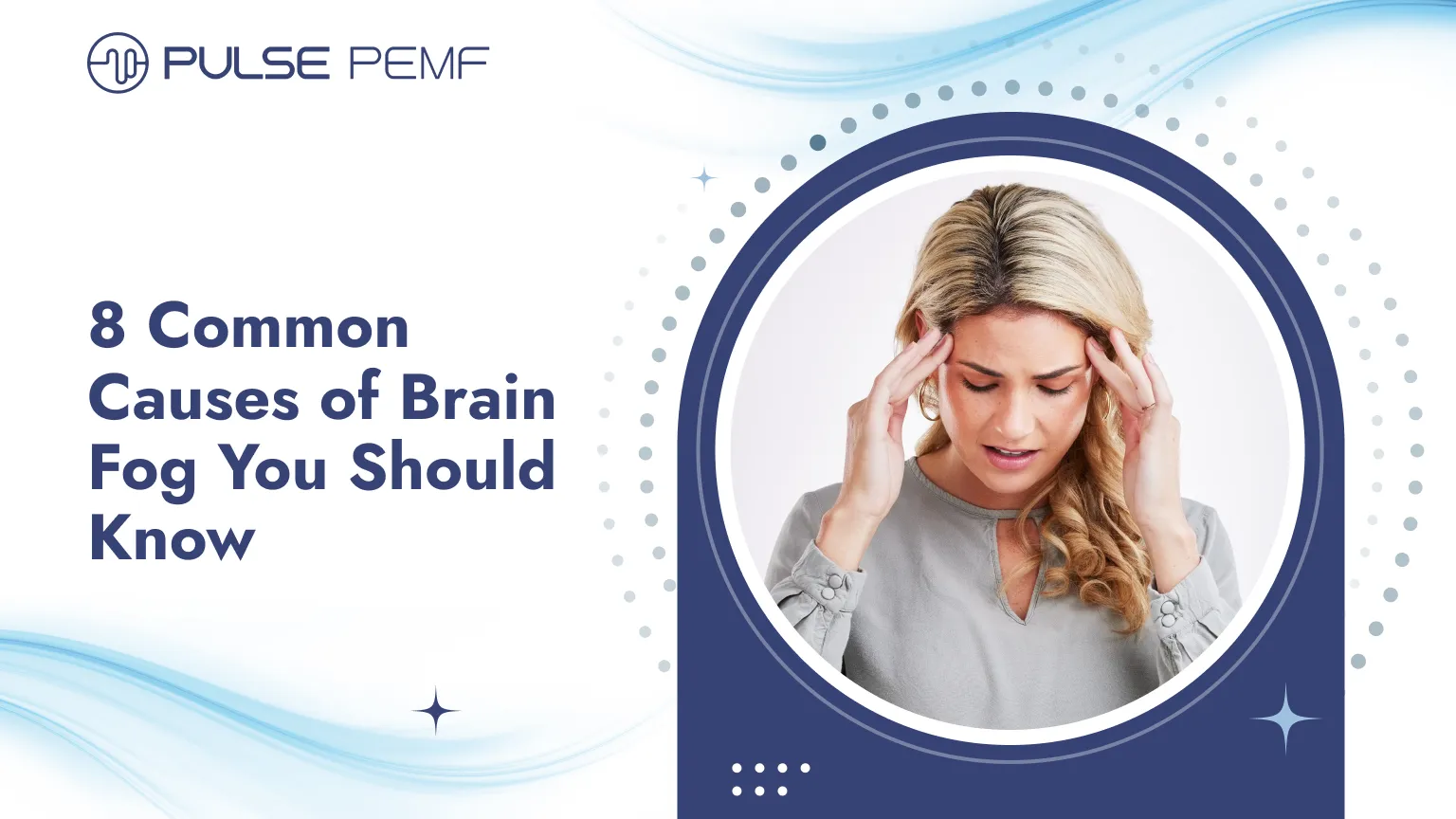Brain fog is a frustrating condition that can leave you feeling confused, disoriented, and unable to focus. It can interfere with your daily life and productivity, making it difficult to concentrate on tasks or remember important information.
In this blog post, we’ll explore some of the most common causes of brain fog. By understanding these underlying factors, you can take steps to address the issue and improve your cognitive function. Let’s dive in and discover what might be causing your brain fog.
Cause 1: Lack of Sleep
How Sleep Affects Cognitive Function
Sleep is crucial for brain health, memory consolidation, and optimal cognitive function. When you don’t get enough quality sleep, your brain struggles to process information, make decisions, and stay focused. This can lead to impaired concentration, memory lapses, and a general feeling of mental fogginess.
Tips for Improving Sleep Quality
Establishing a healthy sleep routine can make a significant difference in your sleep quality. Create a relaxing bedtime ritual, ensure your bedroom is dark, quiet, and cool, and limit screen time before bed. Additionally, try to maintain a consistent sleep schedule to regulate your body’s internal clock.
Cause 2: Poor Diet and Nutrition
Nutritional Deficiencies and Brain Function
Your brain needs a variety of nutrients to function properly. Deficiencies in essential nutrients like Omega-3 fatty acids, B vitamins, and antioxidants can contribute to brain fog. These nutrients support brain cell health, communication, and energy production.
Dietary Recommendations
Include brain-boosting foods in your diet, such as fatty fish (salmon, mackerel), nuts, seeds, fruits, vegetables, and whole grains. Stay hydrated by drinking plenty of water throughout the day. Remember, a balanced diet is essential for overall health and well-being, including cognitive function.
Cause 3: Stress and Anxiety
The Impact of Stress on the Brain
Chronic stress can have a detrimental effect on the brain, leading to issues with memory, focus, and decision-making. The stress hormone cortisol can disrupt brain function and contribute to feelings of brain fog.
To learn more about the science behind stress and practical ways to combat it (including PEMF therapy!), check out this blog.
Cause 4: Hormonal Imbalances
Hormones and Cognitive Function
Hormonal changes can significantly impact brain function. Conditions like menopause, thyroid issues, and hormonal imbalances can contribute to brain fog. Fluctuations in hormones like estrogen and cortisol can affect mood, energy levels, and cognitive abilities.
Addressing Hormonal Imbalances
If you suspect hormonal imbalances are contributing to your brain fog, consult with a healthcare provider for proper diagnosis and treatment. Additionally, maintaining a balanced diet, managing stress, and getting enough sleep can help support hormonal health.
Cause 5: Dehydration
The Role of Hydration in Brain Function
Your brain is mostly composed of water, making hydration essential for optimal function. Dehydration can lead to fatigue, confusion, and poor concentration. When you’re dehydrated, your brain cells struggle to communicate effectively.
Tips for Staying Hydrated
Aim to drink plenty of water throughout the day, even if you don’t feel thirsty. Carry a water bottle with you and sip regularly. You can also incorporate hydrating foods and beverages like fruits, vegetables, and herbal tea into your diet.
Cause 6: Medication Side Effects
Common Medications That Cause Brain Fog
Some medications, such as antihistamines, antidepressants, and certain blood pressure medications, can cause brain fog as a side effect. If you’ve recently started a new medication and are experiencing brain fog, it’s important to consider this possibility and discuss it with your healthcare provider.
If you suspect your medication is contributing to brain fog, consult with your healthcare provider to discuss your options. They may be able to adjust your dosage, switch medications, or recommend other strategies to manage this side effect.
Cause 7: Sedentary Lifestyle
Lack of Physical Activity and Brain Health
Regular physical activity is essential for brain health. A sedentary lifestyle can lead to reduced blood flow to the brain, which may impair cognitive function and contribute to brain fog.
Incorporating Exercise into Your Routine
Aim for at least 30 minutes of moderate-intensity exercise most days of the week.
Activities like walking, swimming, dancing, or cycling can help boost brain function and improve mental clarity. Additionally, taking short movement breaks throughout the day can help prevent mental fatigue.
Cause 8: Underlying Health Conditions
Chronic Illnesses and Brain Fog
Chronic illnesses like chronic fatigue syndrome, fibromyalgia, and autoimmune diseases can often contribute to brain fog. These conditions can affect energy levels, mood, and overall cognitive function.
Seeking Medical Advice
If you’re experiencing persistent brain fog, it’s important to consult with a healthcare provider for proper diagnosis and treatment. Addressing underlying health conditions can help alleviate brain fog symptoms and improve your overall quality of life.
Conclusion
If you’re struggling with brain fog, it’s important to explore the potential causes and take steps to address them. Keeping a journal or tracking your symptoms can help you identify patterns and triggers that may be contributing to your brain fog.
If your brain fog persists or worsens, don’t hesitate to consult with a healthcare provider. Remember, you don’t have to suffer from brain fog. With the right strategies and support, you can improve your cognitive function and regain your mental clarity.















